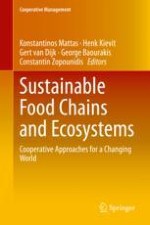2020 | OriginalPaper | Buchkapitel
8. Making ‘Soft’ Economics a ‘Hard Science’: Planning Governance for Sustainable Development Through a Sustainability Compass
verfasst von : Maurizio Sajeva, Mark Lemon, Andrew Mitchell
Erschienen in: Sustainable Food Chains and Ecosystems
Aktivieren Sie unsere intelligente Suche, um passende Fachinhalte oder Patente zu finden.
Wählen Sie Textabschnitte aus um mit Künstlicher Intelligenz passenden Patente zu finden. powered by
Markieren Sie Textabschnitte, um KI-gestützt weitere passende Inhalte zu finden. powered by
